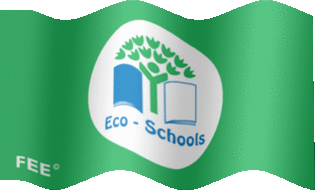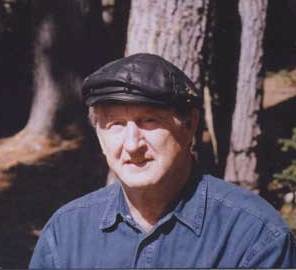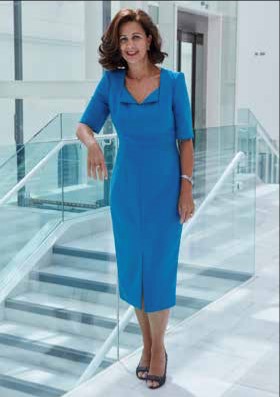Related Research Articles
Science education is the teaching and learning of science to school children, college students, or adults within the general public. The field of science education includes work in science content, science process, some social science, and some teaching pedagogy. The standards for science education provide expectations for the development of understanding for students through the entire course of their K-12 education and beyond. The traditional subjects included in the standards are physical, life, earth, space, and human sciences.

The National Wildlife Federation (NWF) is the United States' largest private, nonprofit conservation education and advocacy organization, with over six million members and supporters, and 51 state and territorial affiliated organizations (including Puerto Rico and the Virgin Islands).

Health education is a profession of educating people about health. Areas within this profession encompass environmental health, physical health, social health, emotional health, intellectual health, and spiritual health, as well as sexual and reproductive health education.

Environmental education (EE) refers to organized efforts to teach how natural environments function, and particularly, how human beings can manage behavior and ecosystems to live sustainably. It is a multi-disciplinary field integrating disciplines such as biology, chemistry, physics, ecology, earth science, atmospheric science, mathematics, and geography.

Eco-Schools is an international programme of the Foundation for Environmental Education (FEE) that aims to “empower students to be the change our sustainable world needs by engaging them in fun, action-orientated, and socially responsible learning.”

Waldorf education, also known as Steiner education, is based on the educational philosophy of Rudolf Steiner, the founder of anthroposophy. Its educational style is holistic, intended to develop pupils' intellectual, artistic, and practical skills, with a focus on imagination and creativity. Individual teachers have a great deal of autonomy in curriculum content, teaching methods, and governance. Qualitative assessments of student work are integrated into the daily life of the classroom, with standardized testing limited to what is required to enter post-secondary education.
Grade skipping is a form of academic acceleration, often used for academically talented students, that enable the student to skip entirely the curriculum of one or more years of school. Grade skipping allows students to learn at an appropriate level for their cognitive abilities, and is normally seen in schools that group students primarily according to their chronological age, rather than by their individual developmental levels. Grade skipping is usually done when a student is sufficiently advanced in all school subjects, so that they can move forward in all subjects or graduate, rather than in only one or two areas. There are alternatives to grade skipping.
Judaism and environmentalism intersect on many levels. The natural world plays a central role in Jewish law, literature, liturgical, and other practices. Within the arena of Jewish thought, beliefs vary widely about the human relation to the environment.
This article includes information about environmental groups and resourcesthat serve K–12 schools in the United States and internationally. The entries in this article are for broad-scope organizations that serve at least one state or similar regions.
The ecopedagogy movement is an outgrowth of the theory and practice of critical pedagogy, a body of educational praxis influenced by the philosopher and educator Paulo Freire. Ecopedagogy's mission is to develop a robust appreciation for the collective potentials of humanity and to foster social justice throughout the world. It does so as part of a future-oriented, ecological and political vision that radically opposes the globalization of ideologies such as neoliberalism and imperialism, while also attempting to foment forms of critical ecoliteracy. Recently, there have been attempts to integrate critical eco-pedagogy, as defined by Greg Misiaszek with Modern Stoic philosophy to create Stoic eco-pedagogy.
Environmental adult education is recognized as a "hybrid outgrowth of the environmental movement and adult education, combining an ecological orientation with a learning paradigm to provide a vigorous educational approach to environmental concerns."

Eban Goodstein is an economist, author, and public educator who directs both the Center for Environmental Policy and the MBA in Sustainability at Bard College. He is known for organizing national educational initiatives on climate change, which have engaged thousands of schools and universities, civic institutions, faith groups, and community organizations in solutions-driven dialogue. He is the author of three books and numerous journal articles. He and his wife, Chungin Chung Goodstein, live in Annandale-on-Hudson, New York. They have three daughters.
Four Green Steps is an internet environmental organization based in Montreal, Quebec. The organization was founded in 2008 by Jaye and Bill Yarrow. The business has been active for three years, but the official launch was held in October 2011. The organization consists of four sections: School Program, Community, Marketplace and InfoZone. Four Green Steps contains information on various environmental topics such as green living, sustainable products, and corporate responsibility. The site also provides an environmental curriculum for various schools of different ages.... The organization celebrated 'Unsolicited Acts of Kindness Week' in August 2012, celebrating by donating used office equipment and pledging to plant a tree for anyone who does a good deed during Kindness Week.
Project Learning Tree (PLT) is an environmental education program for teaching children about trees and forests using hands-on activities. It was created in 1976, after passage of the first National Environmental Education Act in 1970 and celebration of the first Earth Day in 1970, raised the profile of environmental education in the United States.

In the United States, elementary schools are the main point of delivery of primary education, for children between the ages of 5–11 and coming between pre-kindergarten and secondary education.

C. A. (Chet) Bowers was an American educator, author, lecturer and environmental activist. He wrote 27 books that focus on the cultural, linguistic, and technological roots of the current ecological crisis as well as the educational reforms necessary to promote greater ecological awareness.

Climate change education (CCE) is education that aims to address and develop effective responses to climate change. It helps learners understand the causes and consequences of climate change, prepares them to live with the impacts of climate change and empowers learners to take appropriate actions to adopt more sustainable lifestyles. Climate change and climate change education are global challenges that can be anchored in the curriculum in order to provide local learning and widen up mindset shits on how climate change can be mitigated. In such as case CCE is more than climate change literacy but understanding ways of dealing with climate
The Soka School System is a Japanese corporate body that oversees a series of kindergartens, elementary schools, junior high schools, and high schools in Japan and several other countries as well as an educational support and research facility. It is part of a wider network of "Soka" schools which includes Soka University of Japan, Soka University of America, and Soka Women's College. In addition, it has a supportive relationship with several non-affiliated schools and research associations in countries outside of Japan.

Daniella Tilbury is a Gibraltarian academic, educator and sustainable development leader who was the first woman in her country to hold the title of university professor. The inaugural Vice-Chancellor and CEO of the University of Gibraltar, Tilbury, who has long been involved in sustainability issues became the first Commissioner for Sustainable Development in May 2018. She was recognized as an honorary don of St Catharine's College, Cambridge in July 2018 because of her scientific and social contributions.
Annette Elizabeth Gough OAM is an Australian science and environmental education scholar and Professor Emerita in the School of Education at Royal Melbourne Institute of Technology in Australia. She is a pioneer of the environmental education movement in Australia. Gough is known for her critical analysis of the history of the field and for introducing a gender dimension in environmental education research. Although best known for this work, Gough has also made important contributions to science education, research methodology and gender studies.
References
- ↑ Walker, L. (2007) "Sustainability Educator Visits Ithaca," Archived 2007-09-24 at the Wayback Machine The Eco-village in Ithaca Newsletter. Spring 2007. Retrieved 1/8/07.
- ↑ " Cloud Institute for Sustainability Education. Retrieved 1/8/07.
- ↑ Asia Source. (2001) "Feeding Ourselves: Strategies and Solutions to End Hunger in Asia," Retrieved 1/8/07.
- ↑ "Jaimie Cloud", Relevant Times. Retrieved 1/8/07.
- ↑ "Jaimie P. Cloud," [ permanent dead link ] National Association of Independent Schools. Retrieved 1/8/07.
- ↑ "Speaker bios" Archived 2007-12-17 at the Wayback Machine , Baum Forum. Retrieved 1/8/08.
- ↑ "Jaimie P. Cloud, President", Cloud Institute for Sustainability Education. Retrieved 1/8/07.